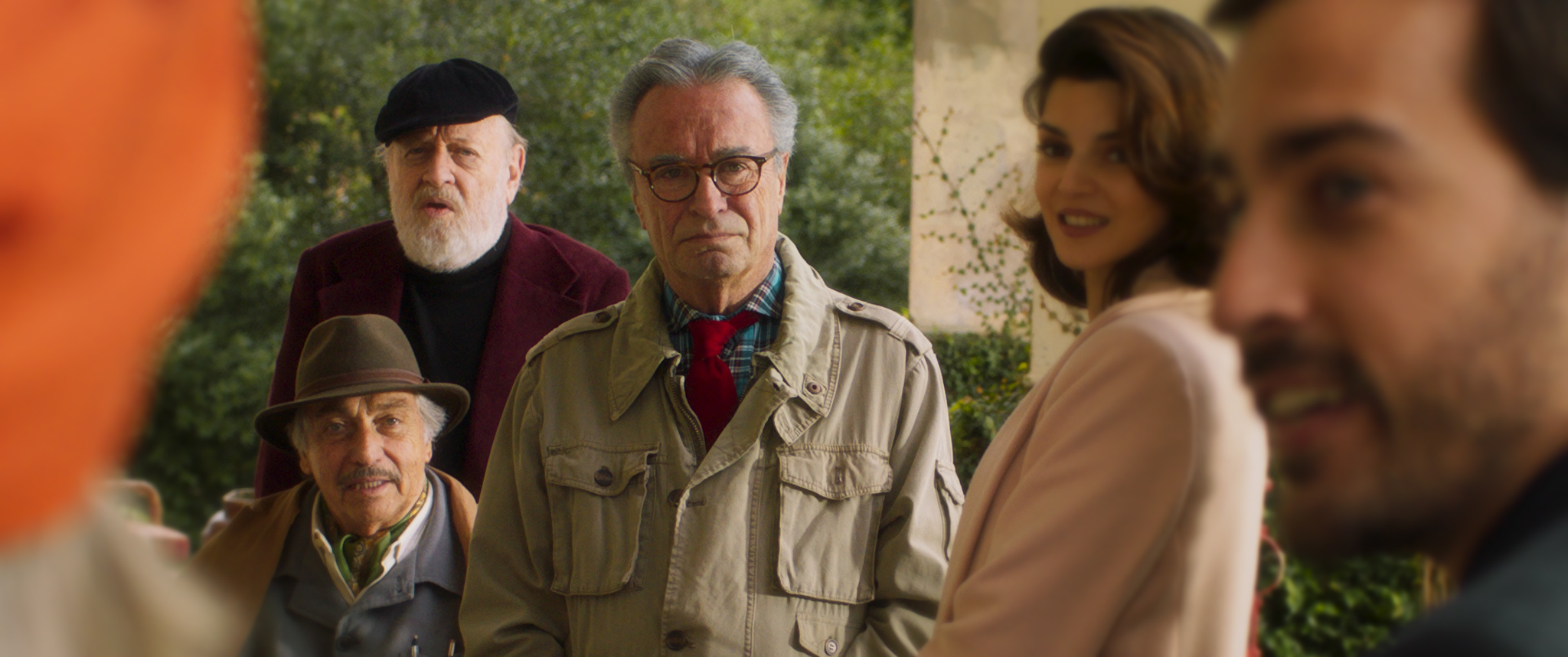“The Weasels’ Tale” – Caught by the tail [MOVIE REVIEW]

Graciela Borges as Mara in “The Weasels’ Tale.” Photo courtesy of Outsider Pictures.
“The Weasels’ Tale,” a delightfully frothy film directed by Oscar winner Juan José Campanella (“The Secret in their Eyes”), co-writing with Darren Kloomok, is a high wire act in a circus of the expected and the surprising.
Synopsizing this film would be impossible without revealing spoilers throughout, as this is a story at once predictable and yet always surprising. Because the characters are the embodiment of old Hollywood, Argentina-style, it is both a universal as well as an “insider” tale.
Open on Mara, grand cinema star of a classic, but now ancient time gone by. Frame by frame we see clips and posters of her past, long past, hits as she revisits them on film like Gloria Swanson reviewing her movies in “Sunset Boulevard.” In the background, Brenda Lee sings “I’m Sorry, so sorry. I didn’t know that love could be so cruel.” Mara moves to the foyer where her “Oscar” is displayed and where she, as would appear to be a longstanding habit, relives her acceptance speech.
It is no coincidence that rats and weasels plague the grounds of this once glorious, now deteriorating estate. Mara lives here with her husband Pedro, a bad painter and even worse actor, confined to a wheelchair after a mysterious accident, and the screenwriter, Martin, and director, Norberto, of her greatest films. It is in their collective best interests to protect her. As the director says to the screenwriter, “We should be careful with Mara. She looks weaker every day. What if something happens to her?” Replies the screenwriter, “Look, if oblivion didn’t kill her, what could a poor little rat do?”
Disposing of a rat and a weasel they have just killed on the grounds, Martin and Norberto continue their discussion. “The only bad thing about this house is the vermin,” says Martin. “They’re not vermin, Martin,” continues Norberto, “They’re little critters… Some eat what we have, others get eaten by us, because we’re critters, too…And, one meal at a time, you have the history of the world.”
As Norberto, Martin, and Pedro sit on the patio drinking almond tea, Norberto proposes a toast. “A Toast to our life not being like one of your scripts.” Martin queries, “You mean not perfect?” “No,” replies Norberto. “Because it is. In movies there are no lives like ours, without problems. A beautiful, solid friendship, over 50 years without any conflict. Too boring, right? In a movie, there should be danger, a threat…” Martin continues, “A villain who comes along just when everything seems fine.” “Exactly,” says Norberto. “So I toast to our lives not being like in the movies.” A car pulls up at that moment and out step Barbara and Francisco, a beautiful young couple from Buenos Aires hopelessly lost and in need of help.

Luis Brandoni as Pedro, Marcos Mundstock as Martín, Oscar Martínez, Clara Lago as Barbara, and Nicolás Francella as Francisco in “The Weasels’ Tale. Photo courtesy of Outsider Pictures.
And we’re off to the races. In the first ten minutes of the film Campanella has set the stage for the characters, plot and scenario, but one that will take so many twists that your head will spin. It’s not that there isn’t an inevitability to it all, it’s that, like a roller coaster at the top of the incline, getting to the end of this movie within a movie within a movie is breath taking and too much fun to reveal.
Campanella has taken delicious inspiration from the aforementioned “Sunset Boulevard” as well as “Whatever Happened to Baby Jane,” not to mention a whiff of “Parasite,” and made the Grand Guignol tradition of the gruesome and horrible into a black comedy all his own.
Campanella is helped enormously by Nelson Noel Luty’s production design and Félix Monti’s cinematography. But what a cast! Veering between over-the-top and subtlety, each actor is terrific in his or her own way. With Graciela Borges as Mara, Campenella found the perfect old-style movie star, living in the past and still grasping for more. Borges, a star who started in the 50s and continues working today, is an award-winning actress who shows no reluctance to satirize her own career. She gives us the perfect blend of narcissism, vulnerability, neediness, and imperious behavior.
Oscar Martinez as Norberto, the director, is cynicism personified. Along with the marvelous Marcos Mundstock, Martin the screenwriter, they form a Greek chorus who cannot stand helplessly by as their very livelihood is threatened. Luis Brandoni, Pedro, is wonderful in his uselessness.
Enter the villains, Clara Lago as Barbara and Nicolás Francella as Francisco, and you have the perfect one-two combination. Francella’s performance is the very embodiment of the banality of evil. Lago’s Barbara excels at being “the smartest person in the room,” a position that needs constant adjustment and is seen in the intensity of her eyes and tenseness of her voice.
This film is incredibly enjoyable, a film that is, at heart, the classic Hollywood tale of greed, foolishness, and loyalty.
Opening December 11 at the following Virtual Theaters:
Laemmle +5, Lumiere @ Music Hall, and our local South Bay Film Society


